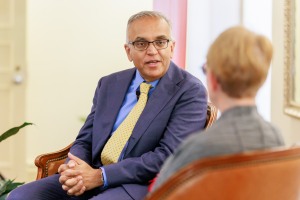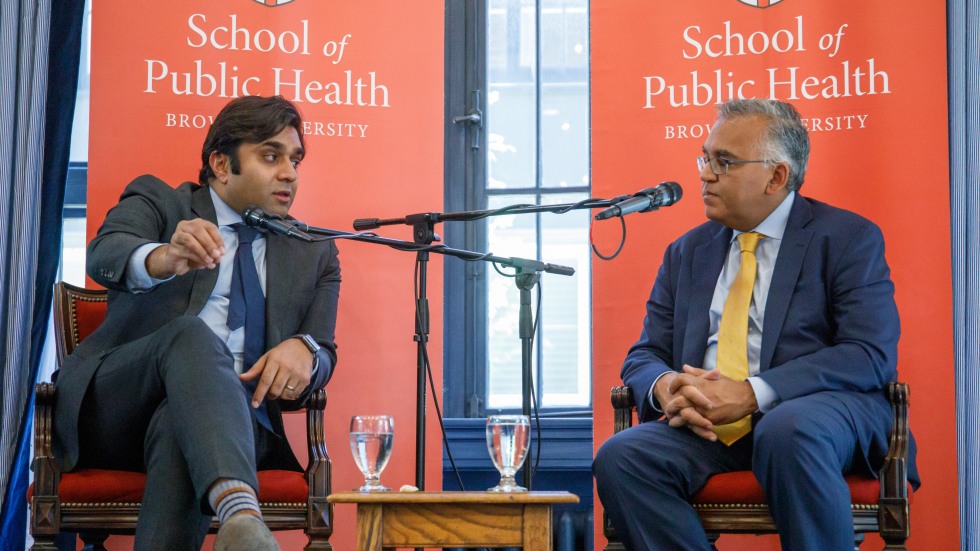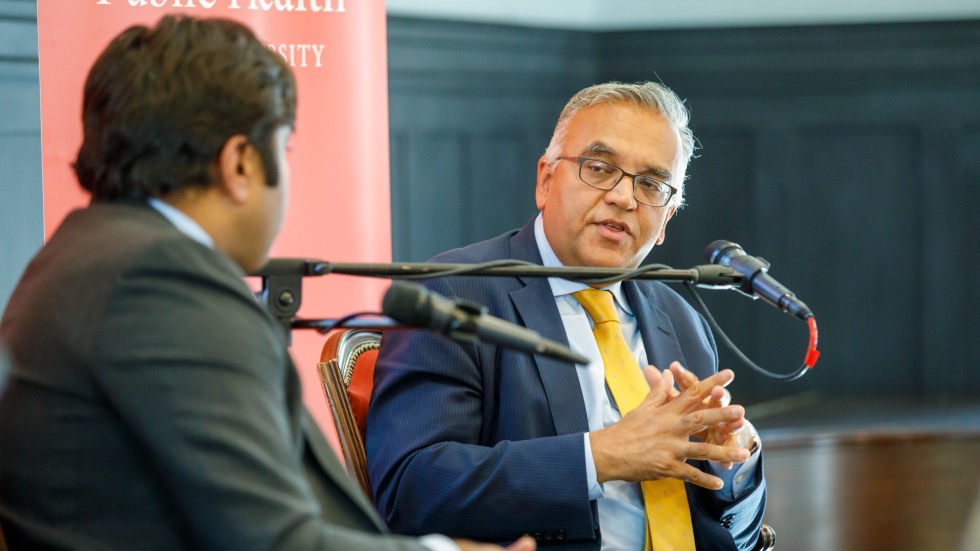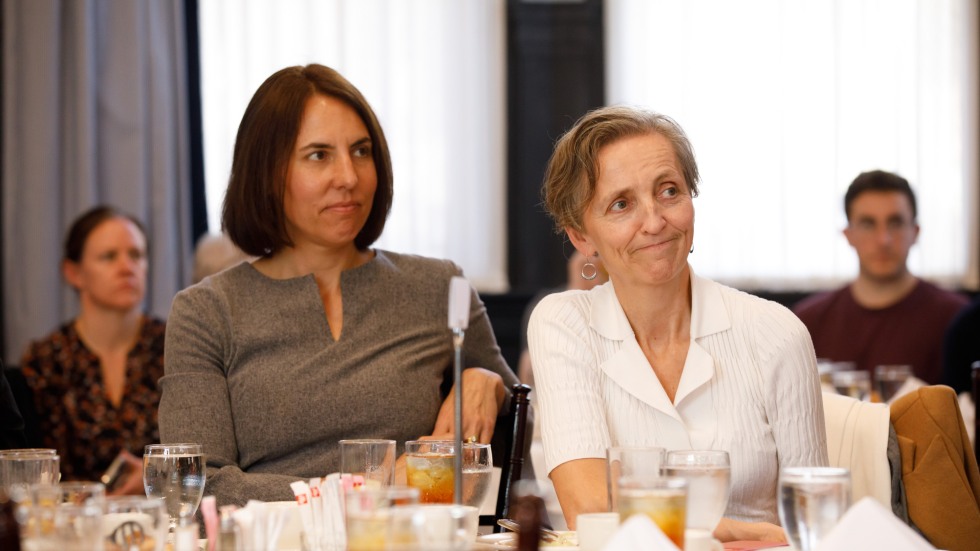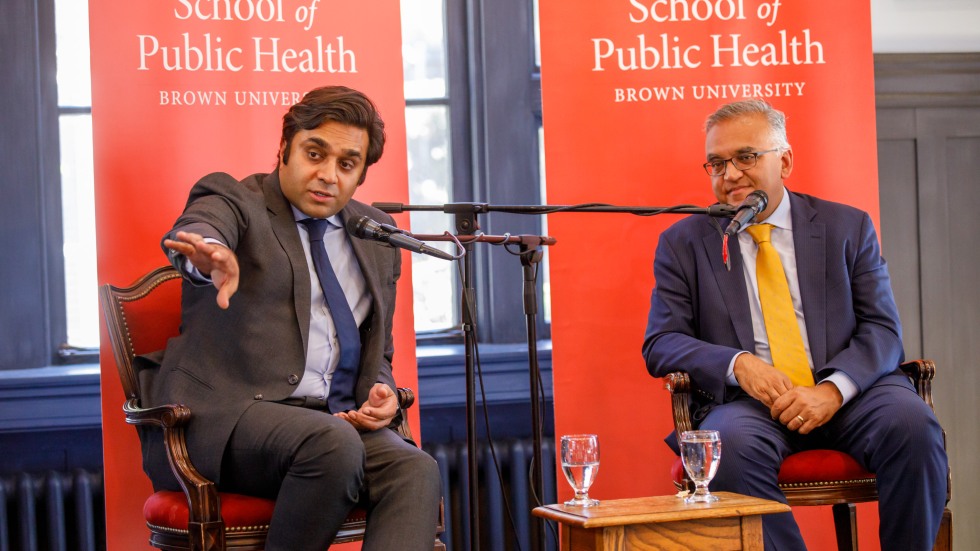On October 24 Dean Ashish Jha hosted the second installment of this year’s Dean’s Conversation Series, which aims to address crucial public health issues by engaging with prominent figures in the field. For this event, Jha was joined by Dr. Ashwin Vasan, who currently serves as the 44th Health Commissioner of New York City.
Vasan is a seasoned public health expert, primary care physician, and epidemiologist with nearly two decades of experience upscaling HIV treatment in developing countries and improving the mental health of underserved populations in the United States. As health commissioner, his focus is the transformation of health, social welfare, and public policies to benefit vulnerable populations in New York City. He assumed the role in early 2022 and is spearheading a comprehensive overhaul of the city’s public health system. His newly launched initiative, Healthy NYC, addresses the root causes of declining life expectancy in the post-COVID era, which includes tackling crises related to overdoses, chronic diseases, birth inequities, climate change, and gun violence. Simultaneously, Healthy NYC strengthens the Health Department’s readiness for emergency responses.
Vasan has also implemented a citywide plan to combat what can be described as a ‘second pandemic’ – a mental health crisis affecting young people, people living under the poverty line, vulnerable New Yorkers with severe mental illnesses, and those affected by the overdose epidemic.
